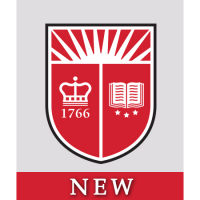
The Working Paper Series is designed to offer new research by Fellows and Guest Scholars of the Institute for the Study of Employee Ownership and Profit Sharing that are circulated for discussion and comment on a more timely basis than the review process of academic journals. The papers have not undergone a peer review although they have been presented in conferences for initial comment by scholars.
The editors of the Working Paper Series are Joseph Blasi (blasi@smlr.rutgers.edu), Douglas Kruse (dkruse@smlr.rutgers.edu) and Adria Scharf (as3332@smlr.rutgers.edu).


Working Paper #3
Christopher Mackin
The field of broad-based employee ownership within corporations is a specific application of the foundational topic of property ownership. It is situated at the intersection of a broad range of scholarly disciplines including economics, law, finance and management. Each discipline contributes vocabulary and distinctions describing this field. That broad spectrum of disciplinary inquiry is a strength but it also lends a “ships passing in the night” quality to discussions of employee ownership. This paper attempts to unravel the narrative diversity surrounding this topic. Four meanings of ownership are introduced. Those meanings are embedded within two abstract models of the corporation: the corporation as property and the corporation as social institution.


Working Paper #2
Roland M. Attenborough
The concentration of ownership by the very wealthy is supported by a financial system that enables them to acquire income-producing capital basically on credit whereas no such financing strategy is available to the mass of the population. A solution lies in creating a system whereby every individual has the right and opportunity to acquire income-producing capital on a basis where the income produced is used to pay for the cost of capital acquisition, and thereafter the capital provides its owner with income indefinitely. In this proposed system, everyone with an active Social Security number would have an account in a nationwide fund that would make investments for all participants. The program puts in place incentives for publicly-traded corporations that would increase the amount of equity financing, as opposed to debt-financing and retained earnings, thereby enabling the mass of the population to participate in a meaningful way in the trillions of dollars of new capital created annually. This paper is a more detailed discussion of how the implementation and operation should be accomplished to create a Universal Capital Trust Fund.


Working Paper #1
Sarah Reibstein (Princeton University)
Laura Hanson Schlachter (University of Wisconsin Center for Cooperatives)
Worker cooperative practitioners and developers often claim that democratic worker ownership advances egalitarianism within and beyond the workplace, but most of the empirical evidence in the U.S. is based on ethnographic case studies or small-scale surveys. We leverage the first national survey about individuals’ experiences in these unique firms to ask if claims that co-ops mitigate gendered and racial inequality generalize to the broader sector.


